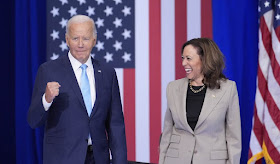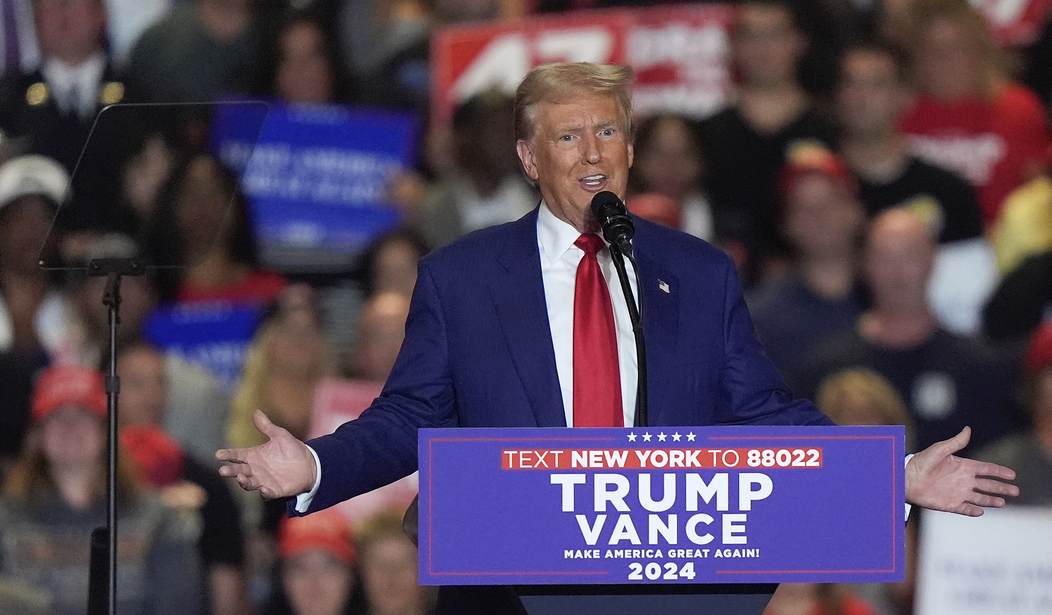Under Weak Democrat Leadership, U.S. Unprepared For Looming War With China
BY: HELEN RALEIGH for The Federalist
The Biden-Harris administration has hamstrung the U.S. military even as China’s army, navy, and air force are on the rise.
The Commission on the National Defense Strategy recently released a report warning that the United States faces the most severe and pressing defense challenges since 1945. The report not only emphasizes the potential for a near-term major war but also underscores the urgent need for action, making the gravity of the situation clear.
The commission, having meticulously reviewed both public and classified information, has identified China and Russia as major adversaries seeking to undermine the United States’ global influence. However, the commission’s greatest concern lies with China. Its report reveals that “in many ways, China is outpacing the United States and has largely negated the U.S. military advantage in the Western Pacific through two decades of focused military investment,” which is a cause for grave concern.
The commission estimates that China spends about $711 billion annually on defense, although some experts estimate it to be around $474 billion. The wide range of estimates for China’s defense spending is due to the Communist regime’s notorious practice of hiding the actual scope of its defense spending from its published government annual budget. Some speculate that Beijing might have underreported its past defense spending by as much as 40 percent.
One thing is sure: China’s yearly defense spending is climbing steadily upward, which poses a serious threat to the United States and its allies, as it allows China to further develop its military capabilities and potentially challenge the current global order.
The commission noted that China already has “the largest aviation force in its region” and the largest army and navy globally (with 370 ships and submarines). In its recent report, the Center for Strategic & International Studies (CSIS), a think tank based in Washington, D.C., points out that the Chinese military is on a war footing, as the regime “is heavily investing in munitions and acquiring high-end weapons systems and equipment five to six times faster than the United States … China is now the world’s largest shipbuilder and has a shipbuilding capacity roughly 230 times larger than the United States.”
Besides preparing for the war itself, China has been deepening its economic and military ties with other U.S. adversaries, including Russia, Iran, and North Korea, helping enhance their military and economic power to cause a menace to the U.S. influence worldwide. For example, China and Russia established a “no-limits” partnership in February 2022, right before Russia invaded Ukraine. Since then, through purchasing Russian oil and gas and agriculture products, China has been propping up Russia’s economy and minimizing the effect of economic sanctions the West has imposed on Russia.
On the military front, Director of National Intelligence Avril Haines testified at a congressional hearing that “China’s provision of dual use components and material to Russia’s defense industry is one of several factors that tilted the momentum on the battlefield in Ukraine in Moscow’s favor, while also accelerating a reconstitution of Russia’s military strength after their extraordinarily costly invasion.”
The commission is deeply troubled by the United States’ unpreparedness as the global security landscape grows increasingly perilous. The U.S. military, lacking the necessary capabilities and capacity, may be unable to confidently deter hostile nations or prevail in combat. This urgent and pressing situation, exacerbated by the Department of Defense’s convoluted “research and development (R&D) and procurement systems, reliance on decades-old military hardware, and a culture of risk avoidance,” demands immediate attention and action.
However, the major constraint of the U.S. military’s capacity and capability has been the Biden-Harris administration’s defense budget cut (after inflation) four years in a row. Take the administration’s 2025 budget, for example. The U.S. Army is asking for 442,300 troops, a decline from 485,000 in 2022. The U.S. Navy will have 287 ships in 2025, down from 296 today. Navy experts estimated that to defeat the Chinese navy in a battle at sea, the U.S. Navy “needs about 350 ships and another 150 unmanned or lightly manned vessels, for a total of 500.” The United States military has been on a trajectory of managed decline under the Biden-Harris administration. It is crucial that we advocate for increased defense budget allocation to address these issues.
The Biden-Harris administration’s decision to accumulate significant national debt on domestic initiatives like the Green New Deal while reducing U.S. defense spending is also a matter of urgent concern. The Committee for a Responsible Federal Budget (CRFB) has reported that the interest payment on our national debt has already exceeded government spending on national defense, a situation that demands immediate attention, especially as the potential for near-term major war has increased.
Another alarming sign of the United States’ unpreparedness for war is the negative effect its military support of Ukraine has had on U.S. military stockpiles. The support has led to a depletion of America’s inventory of certain weapons and ammunitions, underscoring that “the U.S. defense industrial base (DIB) is unable to meet the equipment, technology, and munitions needs of the United States and its allies and partners.” The DIB’s limited capacity to “produce, maintain, and replenish weapons and munitions” will severely hamper the U.S. military’s fighting capability.
Furthermore, the commission warns that a military conflict with a near-peer such as China will result in staggering military and economic costs. Even without a full-out war, “the global economic damage from a Chinese blockade of Taiwan has been estimated to cost $5 trillion, or 5 percent of global gross domestic product (GDP),” which will certainly affect American businesses and consumers.
The commission is concerned that “the U.S. public are largely unaware of the dangers the United States faces or the costs (financial and otherwise) required to adequately prepare. They do not appreciate the strength of China and its partnerships or the ramifications to daily life if a conflict were to erupt. They are not anticipating disruptions to their power, water, or access to all the goods on which they rely. They have not internalized the costs of the United States losing its position as a world superpower.” This concern is a serious one because the United States will not win an all-out war against adversaries such as China without the support and resolve of the American public.
The commission closes its gloomy report with a list of recommendations, two of which are notable. First, “Congress should pass a supplemental appropriation immediately to begin a multiyear investment in the national security innovation and industrial base.” Among other things, this supplemental appropriation would help “expand industrial capacity,” “harden facilities in Asia,” and “secure access to critical minerals.” Second, “for fiscal year 2025, real growth in defense and nondefense national security spending is needed and, at a bare minimum, should fall within the range recommended by the 2018 NDS Commission.”
Ultimately, the American public must be made aware of the potential grave threats we face and factor this into their decisions this November. Do Americans want to elect someone who will continue to impose policies that accelerate America’s economic and military decline and relinquish America’s global leadership role or someone who will stop America’s self-imposed decline, introduce policies that will strengthen this nation economically and militarily, and make America great again?
Make no mistake: An economically and militarily powerful America is the best deterrent of World War III.











